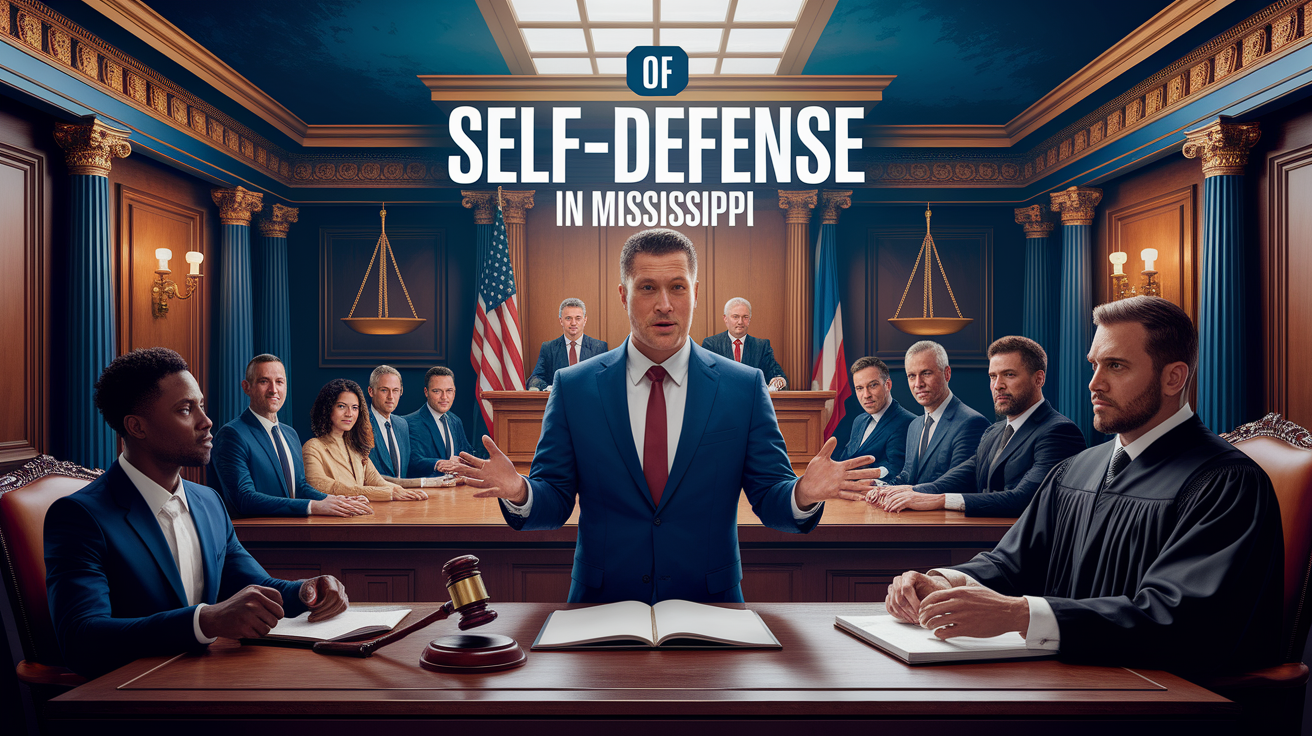Introduction to Does Mississippi Have a Self Defense Law
Yes, Mississippi absolutely has a self-defense law—and it’s one of the more robust in the nation. If you’ve ever wondered about your rights to protect yourself, your loved ones, or your property in the Magnolia State, you’re not alone. Understanding these laws isn’t just academic; it could literally be a matter of life and death.

Mississippi’s self-defense framework combines traditional self-defense principles with modern “Stand Your Ground” provisions that eliminate the duty to retreat in many situations. These laws were designed to empower law-abiding citizens to protect themselves without fear of legal repercussions when their actions are justified.
But as with any legal matter involving potential deadly force, the devil is in the details. What constitutes “reasonable fear”? When can you legally stand your ground? What happens after you’ve defended yourself? These are questions we’ll tackle throughout this guide.
Overview of Mississippi’s Self-Defense Statutes
Mississippi’s self-defense laws are like a shield with multiple layers, each providing different types of protection depending on the circumstances you face.

Stand Your Ground Provisions
At the core of Mississippi’s self-defense framework is its Stand Your Ground law, which removes the traditional “duty to retreat” before using force in self-defense. This means that if you’re legally present somewhere and not engaged in unlawful activity, you can stand your ground and use force—including deadly force—if you reasonably believe it’s necessary to prevent death or great bodily harm.
The Mississippi Legislature has codified these protections in Mississippi Code §97-3-15, which outlines specific scenarios where deadly force is justifiable without retreat. These include defense of person, property, and prevention of certain felonies.
Castle Doctrine Explained
The “Castle Doctrine” portion of Mississippi’s self-defense law specifically addresses protection within your domain. Under this doctrine, there’s a presumption that you had reasonable fear of imminent death or great bodily harm if someone was unlawfully and forcibly entering (or had entered) your:
- Dwelling
- Occupied vehicle
- Place of business
- Workplace
- Immediate surrounding premises
This Castle Doctrine protection is powerful because it creates a legal presumption in your favor—meaning the burden shifts to prosecutors to overcome this presumption if they want to charge you after you’ve used force in these protected locations.
Legal Standards for Self-Defense
To successfully claim self-defense in Mississippi, several key elements must be present:
- You weren’t the initial aggressor
- You responded proportionally to an actual threat
- You reasonably believed you were in danger of death or serious bodily harm (for deadly force cases)
- The threat was imminent—not past or future
It’s important to note that excessive force can invalidate your self-defense claim. For example, using a firearm against someone who merely shoved you would likely be considered disproportionate under Mississippi law.
Practical Steps to Lawfully Assert Self-Defense
Understanding Mississippi’s self-defense laws in theory is one thing—knowing how to properly assert these rights in real-world situations is another. Here’s a practical roadmap:

Before an Incident Occurs
- Know the law: Familiarize yourself with Mississippi Code §97-3-15 and related statutes
- Assess your spaces: Understand which areas qualify for Castle Doctrine protection
- Consider training: Self-defense classes often include legal components specific to Mississippi
- Plan ahead: Have a mental framework for assessing threats proportionally
During a Potential Self-Defense Situation
When faced with a threat requiring potential self-defense:
- Assess the immediacy of the danger—is it happening now?
- Consider proportionality—match your response to the level of threat
- Verbalize when possible—announce your intentions to defend yourself
- Use only necessary force to neutralize the threat
- Stop using force once the threat has ended
After Using Self-Defense
The moments after using force in self-defense are critical:
- Ensure safety first—make sure the threat is neutralized
- Call 911 immediately—report that you were forced to defend yourself
- Provide first aid if safe and possible to do so
- Identify witnesses who can corroborate your version of events
- Speak carefully—state only facts about immediate danger you faced
- Contact an attorney before giving detailed statements
Remember that investigations following self-defense incidents will focus on evidence analysis to determine justification. This includes witness statements, physical evidence, and assessment of the threat you faced.
Benefits of Mississippi’s Self-Defense Protections
Mississippi’s self-defense laws offer several important benefits to law-abiding citizens:
Legal Clarity and Presumptions
One of the greatest benefits of Mississippi’s self-defense framework is the clarity it provides. The law explicitly states when force is justified and creates presumptions that work in favor of those defending themselves in their homes, vehicles, or workplaces.
This legal clarity means you can act decisively in genuine self-defense situations without the paralyzing fear of legal consequences that might otherwise cause fatal hesitation.
Immunity from Civil Liability
Beyond protection from criminal prosecution, Mississippi’s self-defense laws also provide immunity from civil lawsuits in cases where force was legally justified. This means that if you lawfully defend yourself, the person who threatened you (or their family) cannot successfully sue you for damages resulting from your defensive actions.
This civil immunity is a significant benefit that protects your financial well-being after you’ve already endured the trauma of a self-defense situation.
Reduced Burden of Proof
In many self-defense cases in Mississippi, once you’ve established a basic self-defense claim, the prosecution bears the burden of disproving your claim beyond a reasonable doubt. This shifted burden makes it easier to assert your rights when you’ve genuinely acted in self-defense.
Additionally, the Castle Doctrine’s presumption of reasonable fear when someone forcibly enters your home or vehicle creates a powerful legal shield that prosecutors must overcome.
Avoiding Pitfalls and Best Practices
Even with Mississippi’s robust self-defense laws, there are important pitfalls to avoid:
Common Misconceptions
Several dangerous misconceptions about Mississippi’s self-defense laws persist:
- Myth: “I can use deadly force to protect any property.”
Reality: Deadly force is generally only justified for personal safety, not merely to protect property (with limited exceptions). - Myth: “If someone trespasses, I can automatically use force.”
Reality: Simple trespassing without force or threat doesn’t typically justify violent response. - Myth: “Stand Your Ground means I can escalate any confrontation.”
Reality: You still cannot be the initial aggressor and claim self-defense.
When Self-Defense Claims Fail
Self-defense claims in Mississippi typically fail when:
- You initiated or escalated the conflict
- You used disproportionate force relative to the threat
- You continued using force after the threat was neutralized
- You were engaged in illegal activity at the time
- There was no reasonable basis for fearing imminent harm
In these cases, you may face charges including manslaughter, murder, or aggravated assault, depending on the circumstances and outcomes.
Best Practices for Mississippi Residents
To maximize your protection under Mississippi’s self-defense laws:
- Document home security measures that show reasonable precautions
- Consider security cameras that can provide objective evidence
- Maintain appropriate insurance that covers self-defense incidents
- Establish relationships with legal counsel before incidents occur
- Stay informed about changes to Mississippi self-defense laws
- Practice de-escalation techniques as your first line of defense
Remember that the best self-defense situation is the one you avoid entirely. Mississippi’s laws provide protection when you need it, but prevention and de-escalation should always be your first strategy.
So, does Mississippi have a self-defense law? Absolutely—and it’s designed to protect those who find themselves in genuine danger. By understanding these protections and following best practices, you can confidently exercise your right to self-defense while minimizing legal risks.







